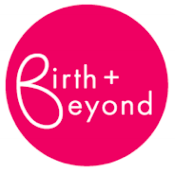Sarah Wheatley, from Birth and Beyond, has written this useful information on Counselling, Cognitive Behavioural Therapy (CBT) and Parent-InfantTherapy.
Sarah is a renowned BACP-registered Counsellor from the United Kingdom, with a background in social research and psychology.

She has appeared in many TV and radio interviews, talking about a number of topics including Perinatal Mental Health and ways to improve the parent-infant bond. For further information about her work, please visit Birth and Beyond website

Please find the information on Counselling, CBT & Parent-Infant Therapies below:
What is counselling?
The terms counselling is often used to describe all kinds of talking therapy, including psychotherapy, although they have very different roots.
Counselling and Psychotherapy both involve regular (often weekly) meetings between a trained therapist and the client, where the client talks about whatever is bothering them and the therapist uses their skills to help the client reach helpful new understandings and insights. This can sometimes take only a few sessions or can last for years.
The difference between counseling and psychotherapy is a bit of a grey area, however, counselling is generally considered to be shorter term and more focused on current events, whereas psychotherapy often has more of a focus on past life events.

Psychotherapy originally stems from the work of Sigmund Freud in the late nineteenth and early twentieth century, and many would consider that the work of Carl Rogers was highly influential in the counseling field.
There are very many other different types of counselling, including (but not limited to): Gestalt, Transactional Analysis, Human Givens, Art Therapy, Cognitive Therapy, Brief Therapy, Solution Focused Therapy.
It has been shown, however, that the modality of the therapist is often not the most important factor in the success of the therapy, it is the quality of the relationship between the client and the therapist that determines this. (Reference1)
How counselling differs from Cognitive Behavioural Therapy (CBT)?
CBT, or Cognitive Behavioural Therapy, stems largely from the work of Aaron Beck.
CBT works on the principle that by controlling our thoughts, we can control our behaviours and emotions, and so CBT gives people tools and strategies to help them manage their thoughts.
It has been shown to be useful for conditions such as specific anxieties, phobias, OCD, depression, panic attacks, schizophrenia, and psychosis.
Counseling and psychotherapy stem from the principle that there is a reason for why you are feeling and having greater insight into what this is will help you find a way to be less distressed by these feelings.
Reducing the distress then gives you more freedom to choose how you want to respond to those feelings.
This is very simplistic, and many counselors or psychotherapists would be quick to say that this kind of therapy will not necessarily stop you feeling the emotion that caused you distress in the first place (for example it will not take away grief).
It might also be understood that counseling and psychotherapy help you reach a greater understanding of yourself and acceptance of your feelings, which can then cause the distress to diminish.
Perhaps the main difference between counselling/ psychotherapy and CBT could be seen to be that in counselling is primarily a relational based therapy, whereas CBT is primarily about techniques.

3. Indications/ why people seek counselling during pregnancy?
Counselling or psychotherapy at any time can be useful, as it can build self-awareness and also pre-empt relationship issues.
Counselling during pregnancy has been shown to help lower the risk of experiencing postnatal depression after the baby is born. (Reference 2)
Counselling or psychotherapy during pregnancy might be especially useful for:
– people who have had previous mental health issues, diagnosed or undiagnosed.
– for those who have experienced Adverse Childhood Experiences such as coming from a family where there was any kind of abuse or neglect, or where one or both parents were substance users.
– for people who experience a loss or other stressful life event recently before or during pregnancy.
– for people who have previously experienced miscarriage or who have had a stillborn baby before this pregnancy.
– in cases where the pregnancy is not planned and possibly unwanted.
– when there are pregnancy-related health issues such as hyperemesis gravidarum/ severe sickness in pregnancy.
– when there is domestic abuse.

4. What is Parent-infant therapy? When is this necessary?
Parent-Infant therapy is when both the person with mental health issues (generally the mother, but not always) is treated with the infant.
There are different kinds of parent-infant therapy, including Parent-Infant Psychotherapy and Video Interaction Guidance (VIG) where a parent and baby are video-ed interaction and clips are selected to show moments of attunement.
This can be helpful in situations where the parent does not have a good bond with the baby.
They maybe think that the baby hates them, or that they are not a ‘good enough’ parent or have damaged their baby in some way.
The therapy provides concrete evidence to the contrary and can help the parent recognize and become more responsive to the baby.

5. How effective is the counseling during pregnancy?
This is hard to measure, as there are so many different reasons why people might choose to go for counseling in pregnancy.
However, there is evidence to show that counseling during pregnancy can reduce the likelihood of developing Postnatal Depression. (Reference 2)
There is evidence to show that counseling during pregnancy can reduce the likelihood of developing Postnatal Depression.

References
Photo credit
Amar Saleem via www.pexels.com
Tags
Counselling/ Counseling
Cognitive Behavioural Therapy (CBT)
Parent-InfantTherapy


